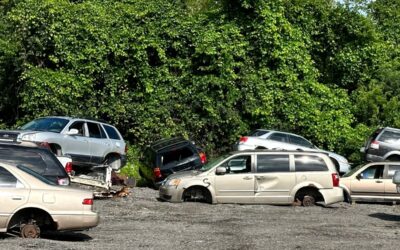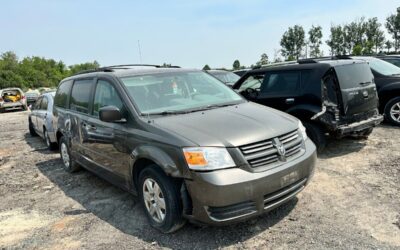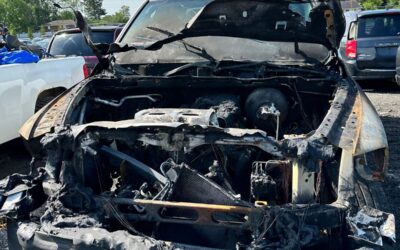Introduction
Maintaining a car already requires time and attention — but counterfeit parts can turn routine maintenance into a serious problem. These fake components are becoming increasingly common and can compromise your vehicle’s safety, performance, and long-term reliability. While counterfeit parts may look identical to genuine ones, they’re often made from inferior materials and haven’t undergone proper safety testing.
What’s worse, most drivers don’t realize a part is counterfeit until it fails. Knowing which components are most frequently faked — and how to identify them — can help you save money, extend your car’s lifespan, and stay safe on the road. Let’s take a closer look at the most common counterfeit car parts and how to protect yourself from buying them.
Common Counterfeit Car Parts
- Brake Pads and Rotors
Brake pads and rotors are essential for the safety of a vehicle, yet they are often counterfeited due to high demand. Fake brake pads may look identical to genuine ones, but tend to wear out faster and fail to handle heat properly. Increased stopping distances and brake failure are risks of using counterfeit brake pads and rotors in your vehicle.
Here’s how to avoid: Buy brake parts from authorized dealer sources or trusted auto shops. Pay attention to proper packaging, labeling, and warranty information. If the price seems unusually low, consider it a red flag.
- Airbags
Airbags are critical safety devices that should always be left as is. Counterfeit airbags might deploy improperly — or fail to deploy altogether — during a crash. The materials and inflators used in counterfeit airbags usually do not adhere to recognised standards, placing passengers in danger.
How to avoid: Always buy airbags from certified dealerships. Avoid second-hand or online marketplaces that cannot guarantee authenticity. Check the part number and manufacturer details against official sources.
- Spark Plugs
Spark plugs are small components vital for an engine’s performance. Fake spark plugs can lead to misfiring, decreased fuel economy, and, over time, can lead to substantial engine damage. Poor plugs may not withstand the high temperature levels or ignite at the appropriate time.
How to avoid: Only purchase genuine spark plugs from trusted manufacturers and certified sellers. Examine the packaging closely, check for serial numbers, and ensure markings are real. Compare the weight and finish to genuine spark plugs.
- Oil Filters
Oil filters help keep the engine clean by trapping debris and contaminants. Suppose you use fake oil filters and leave your engine oil unchanged. In that case, the filter may fail to filter properly, allowing dirt and metal particles to circulate, leading to premature engine wear and shortened engine lifespan.
How to avoid: Stick to filters from trusted manufacturers. Check for proper packaging seals, brand markings, and consistency in materials. Avoid buying bulk filters at suspiciously low prices.
- Fuel Pumps
Fuel pumps supply the correct fuel amounts to engines. Counterfeit pumps may fail prematurely or provide inconsistent fuel pressure, leading to engine stalls and poor performance. Replacement costs can be excessive, and the engine may be damaged.
How to avoid: Purchase fuel pumps from certified auto parts stores or official brand dealerships. Verify part numbers and manufacturer documentation. Avoid online sellers without credible reviews or certifications.
- Batteries
The power source for all electrical components is the car battery. Fake batteries may perform poorly, overheat or leak, causing a safety hazard to the vehicle and the individual. Fake batteries can also diminish the lifespan of the alternator and electrical components.
How to avoid: Purchase batteries from reputable manufacturers and authorized dealers. Ensure the battery casing demonstrates quality, and check the date of manufacture. Don’t sacrifice your potential savings on the price of a great battery, as it can lead to significant concerns later.
Also Read: What Happens to Used Car Batteries in Canada?
- Timing Belts and Chains
Timing belts and chains control engine valves. Counterfeit belts can break prematurely or stretch, causing catastrophic engine damage. The consequences are often far costlier than the initial savings.
How to avoid: Always obtain timing components from reputable manufacturers and authorized representatives. Look for correct packaging, serial numbers, or a quality mark. Avoid resellers who can’t reasonably guarantee authenticity.
Signs of Counterfeit Car Parts
- The exterior of the packaging does not meet the manufacturer’s specifications.
- The label has a price that is considerably lower than the market value.
- There is missing warranty information or certification labels.
- The dimensions, weight, or markings are slightly off compared to the OEM part.
- The seller can not provide proof of authenticity or verifiable documentation of authenticity.
Tips to Avoid Counterfeit Parts
- Buy from Authorised Dealers: Stick to official dealerships or certified auto part retailers. They guarantee genuine products.
- Check Packaging and Labels: Look for spelling errors, inconsistent logos, and missing labels. Genuine parts have high-quality printing.
- Verify Serial Numbers: Manufacturers often provide serial number verification online or through customer support.
- Inspect the Part: Compare the part with original components, looking at finish, weight, and markings.
- Be Wary of Too-Low Prices: If a deal seems too good to be true, it probably is.
- Use Trusted Online Platforms: If buying online, check reviews, ratings, and seller history. Avoid unknown marketplaces.
- Ask for Warranty: Genuine parts come with warranties and return policies. Counterfeit items rarely have these.
Consequences of Using Counterfeit Parts
Some drivers may be tempted to save money by buying imitation parts, but the consequences can be far more costly in the long run. Poor quality parts hinder the safety of vehicles and, therefore, can increase accidents, require repetition of repairs, and incur ongoing costs that typically exceed savings in the long run. Of course, automated parts can void warranties and decrease resale value. Not only does performance decline, but fuel efficiency will also decline, which can complicate insurance claims of accidents related to fake parts.
Conclusion
Counterfeit auto parts pose a hidden but serious danger on our roads. From fake brakes and airbags to unreliable batteries and belts, these components can compromise your safety and your vehicle’s performance. The best way to protect yourself is by staying informed and choosing only certified, genuine parts.
At Greenway Auto Recycling, we’re committed to promoting safety, authenticity, and responsible car recycling across Ontario. Whether you’re replacing a part or scrapping an old vehicle, our team ensures every component meets quality standards and contributes to a safer, cleaner environment. Choose authenticity, choose Greenway — because your safety and your car’s reliability should never be left to chance.





